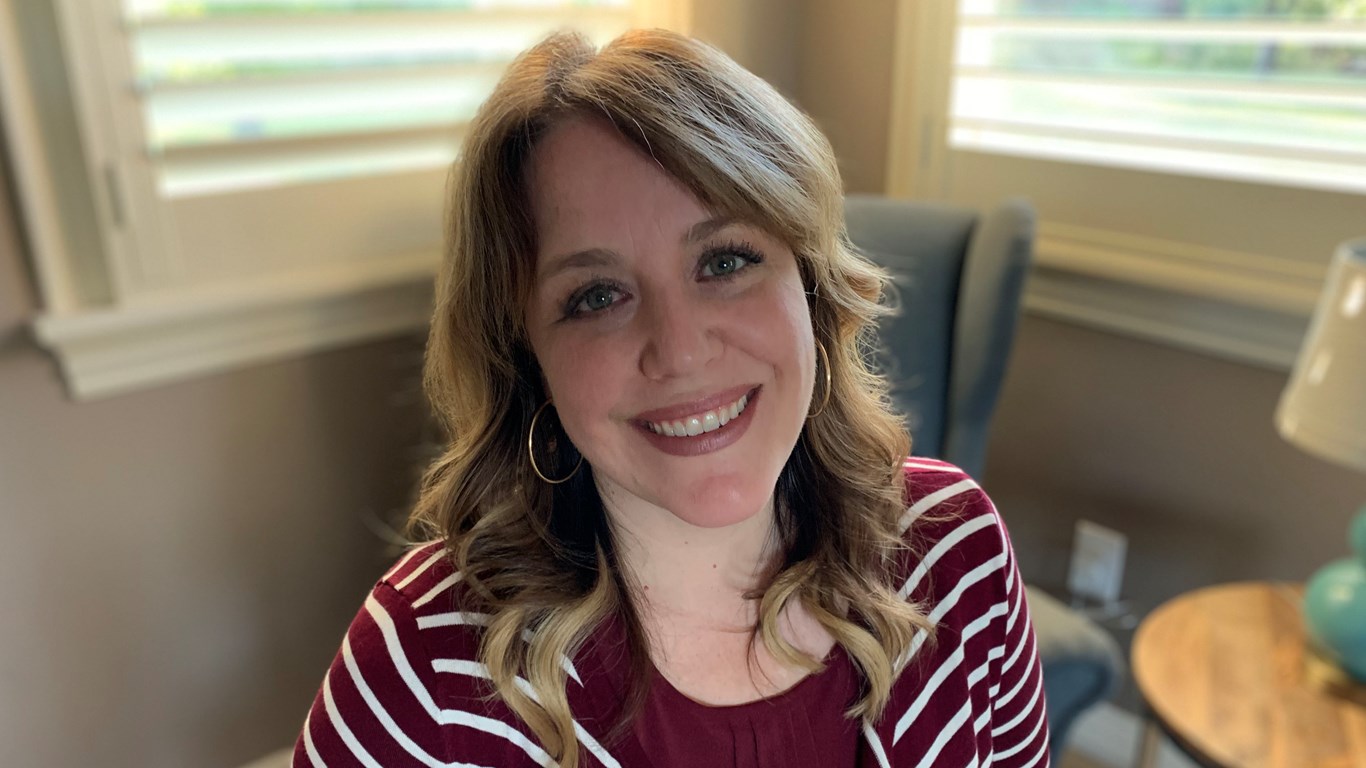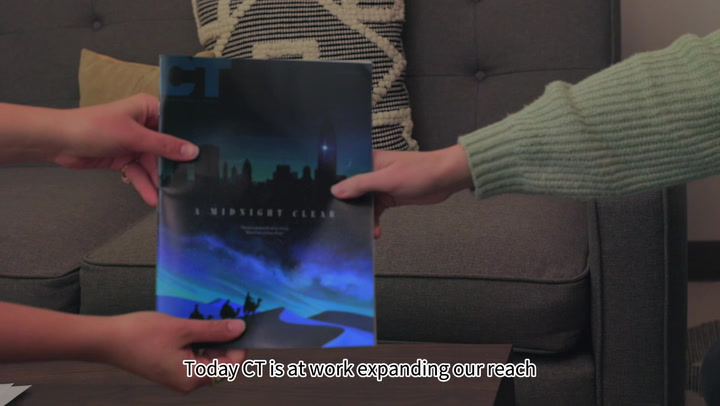
Will you help encourage and connect the church?
Give NowWill you help encourage and connect the church?
Give NowCatherine Taeger Arnsperger loves theology. In fact, when the Arkansas resident graduated from Dallas Theological Seminary in 2017, she had a non-traditional reaction.
"I wept at graduation. I couldn't believe it was over," she said. "Everyone else was gleefully wanting to throw their hats, 'We're done.' I'm like, 'It's the worst day ever.'"
Arnsperger has been in love with theology since she was a child. In fourth grade she asked why Martin Luther's catechism reordered the 10 Commandments differently than the book of Exodus. In junior high, she stumped her pastor about scriptural support for infant baptism.
"No one had an answer for me," she said. "I regularly got the blank looks. And until seminary, that had been the whole of my experience."
Studying theology has helped Arnsperger work through significant personal tragedy. "When I entered seminary I believed I had a very clear view of God. God, I thought, in his sovereignty, causes evil to happen."
So when her daughter died and she and her husband experienced challenges in their marriage, she told herself "God is testing me. God is trying to refine me. So, he's using these bad things to shape me."
But during her time at school, her view began to shift. A key relationship with a professor convinced her "to never put any kind of evil into the hands of God."
"God is love. God is full of compassion and mercy," she said. "God did not cause the death of my daughter, and God does not cause my marital woes. Instead, he held me through those things, and he makes these things work together for my good."
A year after her graduation, a Christianity Today board member and close friend of the couple asked if Arnsperger and her husband would be willing to host a dinner to introduce leaders to the ministry.
Arnsperger had grown up familiar with the magazine and had subscribed on and off as an adult. But the personal connections she made with the staff during the gathering transformed how she saw the ministry.
"Interfacing with the team really opened my eyes to how much good work was happening," she said. "We renewed and started to support the ministry after that dinner."
Arnsperger grew up in a "Presbyterian bubble" in St. Louis, and she's appreciated the ways that CT articles have helped catalyze thoughtful dialogue with family members. Recently, the testimony of a celibate gay Presbyterian pastor opened up a good conversation with her father.
"The testimony gave a fair perspective of a position that is not normally represented by the more traditional views in which my father engages himself." she said. "CT facilitates balanced discussions that allows individuals to make a more informed view in a world where Christians become tribal, coalescing around issues that aren't necessarily central to the faith. This article facilitated many discussions that didn't leave me or those with whom I discussed it retreating to our tribal stances."
In addition to its pieces exploring larger thematic ideas, Arnsperger has also appreciated CT's devotion to news. As her views on the role of women in the church were changing as she studied Greek in her theology classes, Arnsperger found herself closely following reporter Kate Shellnutt's coverage of a scandal involving a Southern Baptist seminary president's response to a former student's sexual assault.
"I found myself back at CT multiple times, following that story," she said. "I was dependent on CT as I was working through my scholarly studies and, at the same time, I followed what was going on in culture."
But that story hasn't been the only thing keeping Arnsperger's attention.
"I particularly appreciate CT's up-to-the-minute news about Christian cultural discussions and events," she said, pointing out a recent piece also about a Southern Baptist sexual abuse conference.
"Balanced and civil reporting is important to me. I don't want tribal reporting," she said. "If something within the church is going on, and CT covers it, I know it's not gossip, drama, or tribalism."
Arnsperger also deeply resonates with CT's cause of Beautiful Orthodoxy. "When I think of orthodoxy, I think of the chain of believers from the Resurrection through today," she said. "I think of my brothers and sisters over space and time proclaiming the same things about the death, burial, and resurrection of Christ and all believing he is coming back to make all things new and the world will be as God intends it."
"There is a beautiful line of succession that we have inherited. It is beautiful because it is true. It is beautiful because it is the unifying thread of all believers across space and time. In a world of tribalism where we have all retreated to our corners instead of treating the enemy as the enemy, reminding one another of the thread that connects us all the way back to the garden, anything that gets us all holding onto that connecting thread, is to be praised, elevated, and respected. Anything that can bring us back to our brothers and sisters across space and time is desperately needed in this world today."
Arnsperger points out that at the heart of CT is "an effort to connect sisters and brothers across the globe on that which is central to our faith."
"Sure, we have differences in our theological views, but that should lead us to embrace thoughtful and productive dialogue," she said. "I'm grateful for the efforts made by the CT staff and its contributors to promote this much needed dialogue by its reporting. CT helps me remember that we belong to one family and, despite our differences and conflicts, we are part of one another and need one another as we all are conformed to the image of God's Son."
Morgan Lee is digital media producer at Christianity Today.








